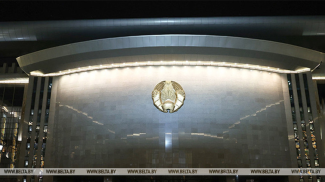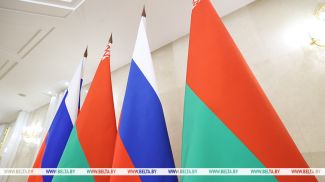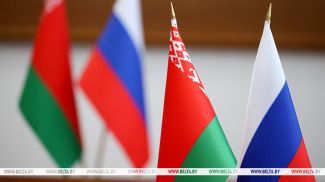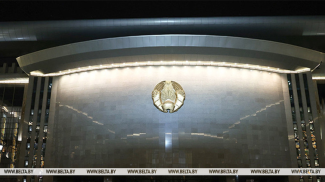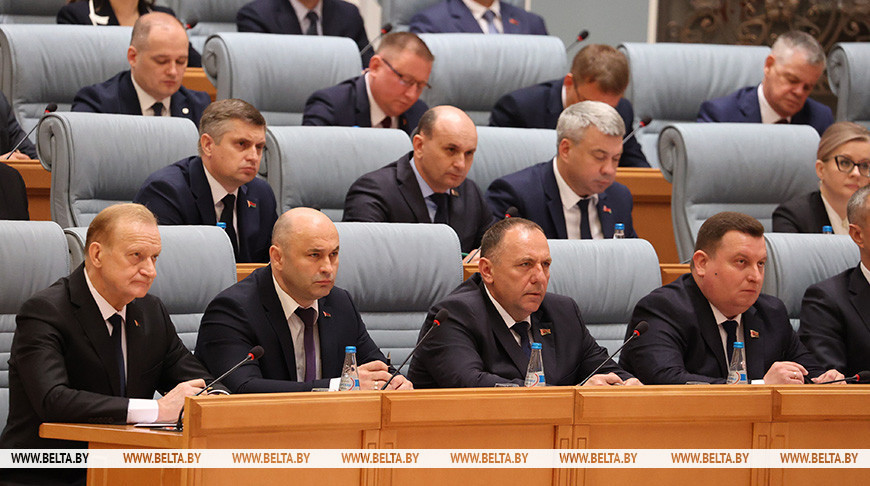
MINSK, 9 April (BelTA) – The industry modernization effort should gain momentum, Belarusian President Aleksandr Lukashenko said at the meeting to discuss the country’s manufacturing sector at the Palace of Independence, BelTA has learned.
The majority of ongoing projects concern the modernization of industry giants inherited from the Soviet Union (MAZ, MTZ, BelAZ). “This is good, but we need to set up absolutely new, advanced production facilities that make innovative products,” the head of state noted. In this regard, the president gave an instruction to strengthen the integration of industry and science, promote high-tech industries and production of computers, electronic and optical equipment.
“We should already be preparing research infrastructure and training engineering and technical personnel to develop promising technologies and create a scientific and technical basis for the further development of the microelectronic industry,” Aleksandr Lukashenko emphasized.
In these conditions, according to him, Belarus-Russia Union State programs and joint import substitution projects to create the foundation for technological sovereignty and economic security are taking on new significance. “Funds have been allocated. It is imperative not only to utilize them in a timely manner, but also to develop and launch products that will be in long-term demand,” the head of state noted.
However, neither the Industry Ministry nor enterprises were prepared for a drastic modernization of the industry, the president remarked. “Until recently, there have been no projects or ideas (I doubt that they exist now). They have finally got their act together and got down to work, although the pace is inadequate,” he said.
According to the president, a strategic task for the country is to achieve technological sovereignty in related industries to ensure sustainable development of the entire economy. These are industries that produce equipment, machine tools, robotics.
“Projects to achieve technological sovereignty should drive the renewal of our manufacturing sector, help the entire economy become more efficient and competitive,” Aleksandr Lukashenko emphasized.
The president set a task for the government to compile a long-term order portfolio for high-tech products from Russian partners. This order portfolio should span at least the rest of this decade: “This way our enterprises will understand the rules by which they will work in Russia.”
The majority of ongoing projects concern the modernization of industry giants inherited from the Soviet Union (MAZ, MTZ, BelAZ). “This is good, but we need to set up absolutely new, advanced production facilities that make innovative products,” the head of state noted. In this regard, the president gave an instruction to strengthen the integration of industry and science, promote high-tech industries and production of computers, electronic and optical equipment.
“We should already be preparing research infrastructure and training engineering and technical personnel to develop promising technologies and create a scientific and technical basis for the further development of the microelectronic industry,” Aleksandr Lukashenko emphasized.
In these conditions, according to him, Belarus-Russia Union State programs and joint import substitution projects to create the foundation for technological sovereignty and economic security are taking on new significance. “Funds have been allocated. It is imperative not only to utilize them in a timely manner, but also to develop and launch products that will be in long-term demand,” the head of state noted.
However, neither the Industry Ministry nor enterprises were prepared for a drastic modernization of the industry, the president remarked. “Until recently, there have been no projects or ideas (I doubt that they exist now). They have finally got their act together and got down to work, although the pace is inadequate,” he said.
“The high-tech equipment commissioned by Orsha Tool Plant in 2023 to make import-substituting advanced metal-cutting tools (drills and cutters) is utilized by only 50%. They are kicking the can down the road again. Is it so hard to understand: if we slow down and trail behind, we will be run over. You were given all the necessary financing tools and the authority to make operational decisions. What else do you need?”
According to the president, a strategic task for the country is to achieve technological sovereignty in related industries to ensure sustainable development of the entire economy. These are industries that produce equipment, machine tools, robotics.
“Projects to achieve technological sovereignty should drive the renewal of our manufacturing sector, help the entire economy become more efficient and competitive,” Aleksandr Lukashenko emphasized.
The president set a task for the government to compile a long-term order portfolio for high-tech products from Russian partners. This order portfolio should span at least the rest of this decade: “This way our enterprises will understand the rules by which they will work in Russia.”






